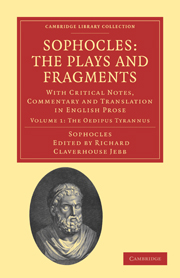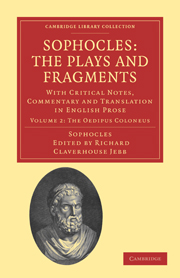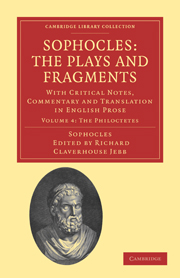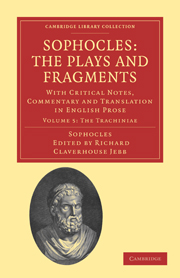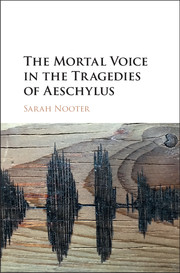When Heroes Sing
Sophoclean heroes engage in lyric song far more than other heroes of tragedy and this has profound implications for both the hero himself and tragedy as a genre. This lyrical voice grounds the heroes in a world of poetic identity and power, demonstrating how tragedy was influenced by other kinds of poetry in fifth-century Athens. Yet, at the same time, the heroes' lyrical voices set them apart from their communities and lend them the authority and abilities of poets. Through close readings, this book demonstrates how the voice of each hero is inflected by song and other markers of lyric poetry, in order to discuss the purpose of their lyric passages and the wider issue of defining the nature and function of the poetic voice. This study offers new insight into the ways that Sophoclean tragedy inherits and refracts the traditions of other poetic genres.
- Proposes a new view of language in Sophocles
- Includes discussions of poetry and culture in general in fifth-century Athens
- Written in simple prose and all Greek text is supplemented with English translations
Reviews & endorsements
"Nooter has good observations on every play, and a strong sense of how the musical forms and marked language of a play contribute to its overall effect. Readers interested in stagecraft, rhetoric, or poetics (of tragedy and beyond) will benefit from the book. ...this is a creative reading of six of the seven extant plays of Sophocles from a new point of view, filled with fascinating observations." --BMCR
Product details
June 2016Paperback
9781316613474
210 pages
228 × 152 × 12 mm
0.31kg
Available
Table of Contents
- Introduction: poetry, tragedy, and Sophocles
- Part I. Poetic Authority:
- 1. Poetic progress in Ajax
- 2. Waxing heroic in Trachiniae and Oedipus Tyrannus
- Part II. Poetic Power:
- 3. Addressing lament in Electra
- 4. Philoctetes' apostrophes
- 5. The end and afterlife of poeticity: Oedipus at Colonus.


